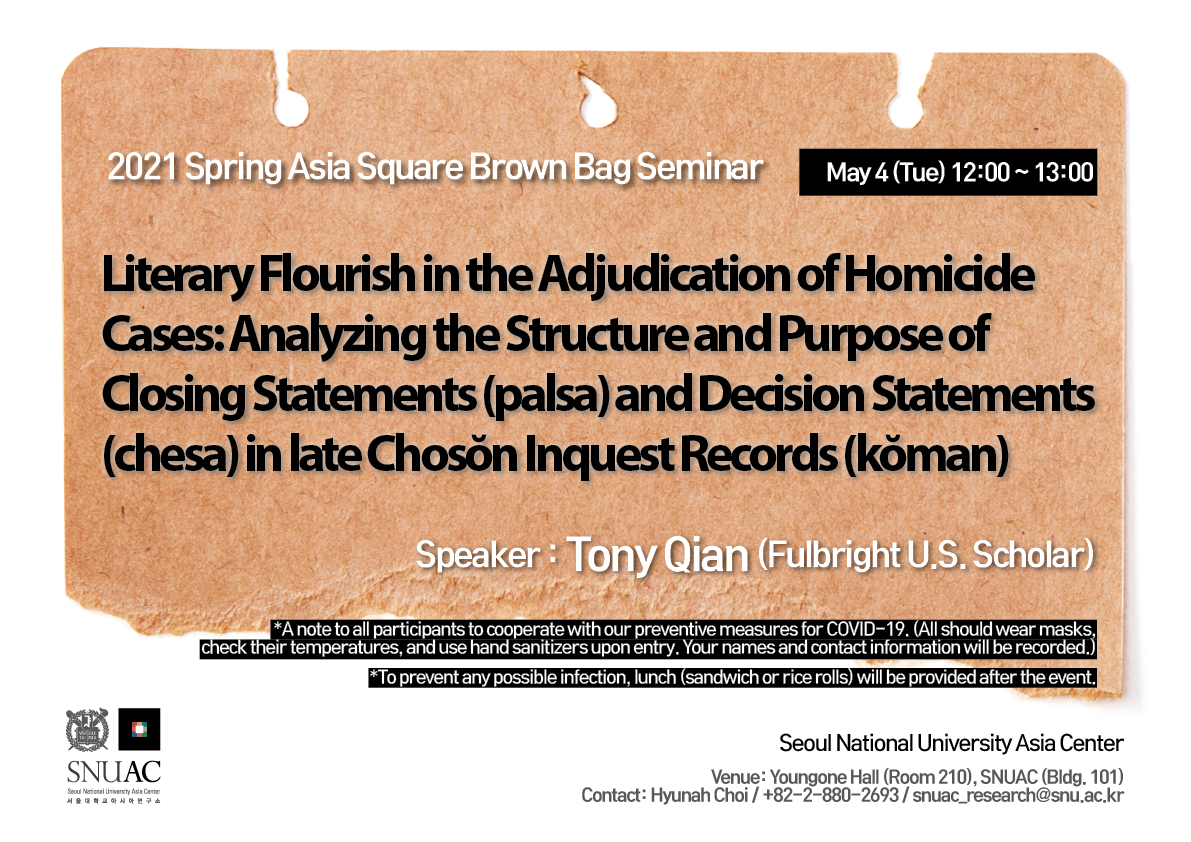Literary Flourish in the Adjudication of Homicide Cases: Analyzing the Structure and Purpose of Closing Statements (palsa) and Decision Statements (chesa) in late Chosŏn Inquest Records (kŏman)
Speaker: Tony Qian (Fulbright U.S. Scholar)
Late Chosŏn inquest records (kŏmsi munan 檢屍文案, or kŏman) were legal reports detailing the examination of corpses in homicide cases while also containing the testimonies of suspects and witnesses, and the closing statements (palsa 跋辭) (i.e., verdicts) of magistrates. Often the decision statements (chesa 題辭) of the provincial governor are also appended in response to the magistrate’s conclusions. Previous studies have examined inquest records for insights into the lives of ordinary people and their attitudes toward law in the late Chosŏn. Few, however, have focused on the narrative and rhetorical strategies in the palsa and chesa, where officials analyzed the evidence and justified their decisions in stylized prose. By looking at select inquest records, this talk presents the claim that the palsa and chesa were at once means of demonstrating the cultural and moral authority of the decisionmaker and attempts to impose a singular judicial logic on cases that were filled with ambiguities and
tensions. It views the literary flourish in these texts as a way to persuade other officials who have the same classical Confucian training that a decision was not just judicially, but also morally, correct.
Tony Qian is currently a Fulbright U.S. Scholar and a visiting scholar at Seoul National University Asia Center (SNUAC) from January 2021. He received his J.D. from Harvard Law School in 2013 and Ph.D. in comparative literature at Harvard in 2017. After completing his dissertation on legal judgments and rhetoric in the early Roman Empire and the Tang, he has given numerous talks, and published journal articles, on premodern Chinese legal culture, including his latest article in T’oung Pao, “Moral Sensibilities, Emotions, and the Law: Extralegal Considerations in Tang Literary Judgments on Spousal Relationships.” His current research focuses on literati and legal culture in the Chinese late imperial period and late Chosŏn, in particular, the narrative and rhetorical strategies found in judicial decisions and case narratives. He is also working on a project on the influence of Neo-Confucian thought and classical education on judicial administration in both late imperial China and Chosŏn Korea, exploring law-related texts as part of the literati culture in which they were produced. He has taught Chinese literature at both Harvard and Tufts University, and is also a recipient
of fellowships from the Korea Foundation, the American Philosophical Society, and the American Council of Learned Societies.

